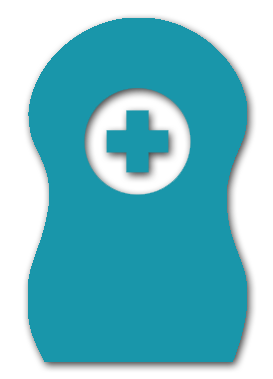
3 Year Visit
Welcome to the “Threenage” year! This is the year of “do it myself” and exploration. Sometimes that can be frustrating, but it is also fun and exciting to see your little person develop so quickly!
What most babies do by this age:
Social/Emotional Milestones
- Calms down within 10 minutes after you leave her, like at a childcare drop off
- Notices other children and joins them to play
Language/Communication Milestones
- Talks with you in conversation using at least two back-and-forth exchanges
- Asks “who,” “what,” “where,” or “why” questions, like “Where is mommy/daddy?”
- Says what action is happening in a picture or book when asked, like “running,” “eating,” or “playing”
- Says first name, when asked
- Talks well enough for others to understand, most of the time
Cognitive Milestones (learning, thinking, problem-solving)
- Draws a circle, when you show him how
- Avoids touching hot objects, like a stove, when you warn her
Movement/Physical Development Milestones
- Strings items together, like large beads or macaroni
- Puts on some clothes by himself, like loose pants or a jacket
- Uses a fork
Source: CDC – Learn the Signs, Act Early
What to work on next:
- Kids this age love to “do it myself” and love to make their own choices. Use this desire as one of your main behavioral tools this year. Whenever possible, present several reasonable options and let them choose for themselves.
- You can let this be a way of teaching how families and friends live together and cooperate by letting each person in the family have a chance to “choose” something. Include your 3 year old in this rotation but point out that others also make choices. You could say something like, “Remember, you got to choose what you’re wearing today and now it’s mommy’s turn to choose where we go. I think I’ll choose to drive us to school.”
- This process won’t be perfect, but will be teaching important ideas of sharing and cooperation.
- Practice encouragement and be generous with praise every day.
- Encourage trying new things and exploring the world (with a few safety guidelines, of course).
Safety
- Never let your child ride in a car unless properly restrained in a
car seat. - Teach your child about ‘strangers’ and interacting with people safely.
- Emphasize street safety. Begin to teach children how to look
for cars before crossing the street. - Encourage safety on tricycles.
- If you own a gun, we encourage you not to store it at home or in
the car. Never store a gun loaded or near ammunition.
Diet
- Continue to encourage eating a balanced diet. If necessary, “pouches” are still a valuable tool to keep some nutrients in the diet regularly.
- Encourage “trying” foods. We often explan to kids that as they get older they will start to like foods that they didn’t like before. The only way to find out what they like now is to try some of those foods occasionally.
- Still aim for 2 servings of milk or dairy daily
- You can start teaching table manners at this age so that kids are learning the social aspects of eating with others early.
Sleep
At age 3, kids should at least start the night in their own bed. Many kids this age will wake at night and go find their parent’s bed. This is really common and can be handled by lovingly taking them back and tucking them in with some reassurance. Of course, if you’re very tired, they may climb in bed with you before you even wake up. That’s also very common and not a cause for worry.
Hygeine
If you haven’t started regular dental visits, now is the time to do so. Some parents find that their own dentists also see kids and that can work out great. There are also many very good pediatric dentists in our city if you find that your dentist isn’t the right fit for your little one.
Although it seems like a great idea to play in the tub with a lot of soap or bubble bath to get really clean, soaking in soapy water can lead to urinary symptoms. If your child likes to play in the tub for a long time, let them play in the water before you add soap. Once the soap is in and the washing is done, go on and get them out of the bath.
Potty Training
Many kids are completely potty trained by this age. If that’s your child, great! If not, it’s not a worry yet at all. Many kids are slower and will continue to need patience as they slowly develop this skill.
Try to reduce pressure. Unfortunately if a child is feeling pressured to potty train, they often become resistant. This can lead to lots of frustration for parents and kids both and even lead to physical problems from avoiding going to the bathroom. Try to stay “laid back” and keep the pressure down.
If your child is in daycare or parent’s day out, talk to their teachers about what they’re doing at school. You may want to let the school take the lead in this area and copy their vocabulary and routine at home.
If this whole issue is becoming more and more frustrating, make sure you talk to your pediatrician about it for more individualized tips.
Immunizations
Depending on the season, make sure that your child either recieves the flu vaccine today or in the fall of the year (typically September or October are appropriate times for flu vaccines). Other than the seasonal flu vaccine, they shouldn’t be due any shots until age 5.
